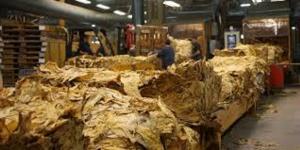| Author: | Louis Couperus | ISBN: | 1230000911092 |
| Publisher: | CP | Publication: | January 27, 2016 |
| Imprint: | Language: | English |
| Author: | Louis Couperus |
| ISBN: | 1230000911092 |
| Publisher: | CP |
| Publication: | January 27, 2016 |
| Imprint: | |
| Language: | English |
STEYN'S deep bass voice was heard in the passage:
"Come, Jack, come along, dog! Are you coming with your master?"
The terrier gave a loud, glad bark and came rushing madly down the stairs, till he seemed to be tumbling over his own paws.
"Oh, that voice of Steyn's!" Ottilie hissed between her teeth angrily and turned a number of pages of her novel.
Charles Pauws glanced at her quietly, with his little smile, his laugh at Mamma's ways. He was sitting with his mother after dinner, sipping his cup of coffee before going on to Elly.
Steyn went out with Jack; the evening silence settled upon the little house and the gas hummed in the impersonal and unhomely sitting-room. Charles Pauws looked down at the tips of his boots and admired their fit.
"Where has Steyn gone?" asked Mamma; and her voice grumbled uneasily.
"Gone for a walk with Jack," said Charles Pauws.
He was called Lot at home; his voice sounded soft and soothing.
"He's gone to his woman!" snarled Ottilie.
Lot made a gesture of weariness:
"Come, Mamma," he said, "be calm now and don't think about that scene. I'm going on to Elly presently; meantime I want to sit cosily with you for a bit. Steyn's your husband, after all. You mustn't always be bickering with him and saying and thinking such things. You were just like a little fury again. It brings wrinkles, you know, losing your temper like that."
"I am an old woman."
"But you've still got a very soft little skin."
Ottilie smiled; and Lot stood up:
"There," he said, "give me a kiss.... Won't you? Must I give you one? You angry little Mummy! ... And what was it about? About nothing. At least, I can't remember what it was all about. I should never be able to analyse it. And that's always the way.... How do I come to be so unruffled with such a little fury of a Mamma?"
"If you imagine that your father used to keep unruffled!"
Lot laughed that little laugh of his and did not reply. Mrs. Steyn de Weert went on reading more peacefully; she sat in front of her book like a child. She was a woman of sixty, but her blue eyes were like a child's, full of a soft beauty, gentle and innocent; and her voice, a little high-toned, always sounded like a child's, had just sounded like the voice of a naughty child. Sitting, small and upright, in her chair, she read on, attentively, calming herself because Lot had spoken so calmly and kissed her so comfortingly. The gas hummed and Lot drank his coffee and, looking at his boots, wondered why he was going to be married. He did not think he was a marrying man. He was young still: thirty-eight; he really looked much younger; he made enough money with his articles to risk it, frugal-fashion, with what Elly would get from Grandpapa Takma; but all the same he did not think that he was of the marrying kind. His liberty, his independence, his selfish power to amuse himself as he pleased were what he loved best; and marrying meant giving one's self over, bound hand and foot, to a woman. He was not passionately in love with Elly: he thought her an intelligent, artistic little thing; and he was really not doing it for what she would inherit from Grandpapa Takma. Then why was he doing it, he asked himself, as he had asked himself day after day, during that week which had followed on his proposal.
"Mamma, can you tell me? Why did I propose to Elly?"
STEYN'S deep bass voice was heard in the passage:
"Come, Jack, come along, dog! Are you coming with your master?"
The terrier gave a loud, glad bark and came rushing madly down the stairs, till he seemed to be tumbling over his own paws.
"Oh, that voice of Steyn's!" Ottilie hissed between her teeth angrily and turned a number of pages of her novel.
Charles Pauws glanced at her quietly, with his little smile, his laugh at Mamma's ways. He was sitting with his mother after dinner, sipping his cup of coffee before going on to Elly.
Steyn went out with Jack; the evening silence settled upon the little house and the gas hummed in the impersonal and unhomely sitting-room. Charles Pauws looked down at the tips of his boots and admired their fit.
"Where has Steyn gone?" asked Mamma; and her voice grumbled uneasily.
"Gone for a walk with Jack," said Charles Pauws.
He was called Lot at home; his voice sounded soft and soothing.
"He's gone to his woman!" snarled Ottilie.
Lot made a gesture of weariness:
"Come, Mamma," he said, "be calm now and don't think about that scene. I'm going on to Elly presently; meantime I want to sit cosily with you for a bit. Steyn's your husband, after all. You mustn't always be bickering with him and saying and thinking such things. You were just like a little fury again. It brings wrinkles, you know, losing your temper like that."
"I am an old woman."
"But you've still got a very soft little skin."
Ottilie smiled; and Lot stood up:
"There," he said, "give me a kiss.... Won't you? Must I give you one? You angry little Mummy! ... And what was it about? About nothing. At least, I can't remember what it was all about. I should never be able to analyse it. And that's always the way.... How do I come to be so unruffled with such a little fury of a Mamma?"
"If you imagine that your father used to keep unruffled!"
Lot laughed that little laugh of his and did not reply. Mrs. Steyn de Weert went on reading more peacefully; she sat in front of her book like a child. She was a woman of sixty, but her blue eyes were like a child's, full of a soft beauty, gentle and innocent; and her voice, a little high-toned, always sounded like a child's, had just sounded like the voice of a naughty child. Sitting, small and upright, in her chair, she read on, attentively, calming herself because Lot had spoken so calmly and kissed her so comfortingly. The gas hummed and Lot drank his coffee and, looking at his boots, wondered why he was going to be married. He did not think he was a marrying man. He was young still: thirty-eight; he really looked much younger; he made enough money with his articles to risk it, frugal-fashion, with what Elly would get from Grandpapa Takma; but all the same he did not think that he was of the marrying kind. His liberty, his independence, his selfish power to amuse himself as he pleased were what he loved best; and marrying meant giving one's self over, bound hand and foot, to a woman. He was not passionately in love with Elly: he thought her an intelligent, artistic little thing; and he was really not doing it for what she would inherit from Grandpapa Takma. Then why was he doing it, he asked himself, as he had asked himself day after day, during that week which had followed on his proposal.
"Mamma, can you tell me? Why did I propose to Elly?"















